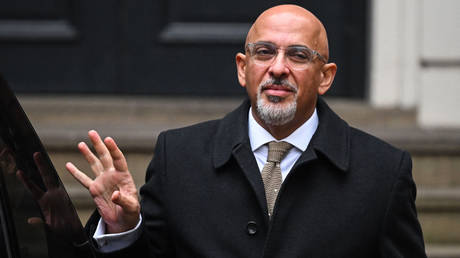
Nadhim Zahawi found himself in hot water after paying a huge settlement over alleged tax avoidance
UK Prime Minister Rishi Sunak has sacked Nadhim Zahawi as Chairman of the Conservative Party over a tax affairs controversy.
Zahawi had faced calls to resign after it came to light that he settled a multimillion-pound tax dispute with His Majesty’s Revenue and Customs (HMRC) department while he was serving as Chancellor of the Exchequer. The matter revolved around Zahawi’s apparent failure to properly declare profits earned from the sale of his stake in YouGov, the polling company he had co-founded.
In a letter on Sunday, Sunak said that after the revelations about the MP’s “personal financial arrangements and declarations” came to light, he ordered an investigation into the matter. He said that Zahawi “undertook to cooperate fully with the inquiry.”
The findings showed that “there has been a serious breach of the Ministerial Code…As a result, I have informed you of my decision to remove you from your position in His Majesty’s Government,” Sunak told Zahawi in the letter.
Zahawi himself admitted his tax error, arguing it was “careless and not deliberate.” He claimed that when he created the company, he asked his father to help, who in the process, “took founder shares in the business in exchange for some capital.” When HMRC “disagreed about the exact allocation,” Zahawi settled the matter and paid “what they said was due,” he said.
The ex-chairman did not disclose the size of the settlement, but it was reported to be £4.8 million ($5.9 million), including a 30% penalty.
Zahawi was fired shortly after Sir Laurie Magnus, Sunak’s ethics adviser, concluded in a letter that the MP “has shown insufficient regard for the general principles of the Ministerial Code” and has not fulfilled the requirements of being an “honest, open and an exemplary leader.” The conduct of the ex-chairman had also “fallen below the high standards” expected from cabinet ministers, Magnus said.
Zahawi was appointed as the Conservative Party’s chairman on October 25. Prior to that, the Iraqi–born politician had held several junior ministerial positions and briefly served as chancellor in the government of former Prime Minister Boris Johnson.




